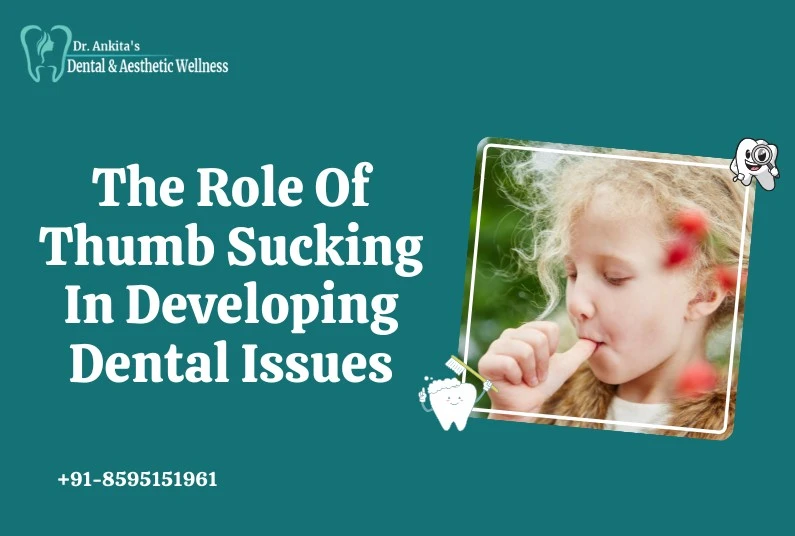Thumb sucking is a common habit among infants and young children which is natural. It provides comfort, helps them self-soothe, and can even serve as a coping mechanism during times of stress. However, while thumb sucking might seem harmless in the early years, prolonged or vigorous thumb sucking can lead to significant dental issues as children grow. At Dental and Aesthetic Wellness, we believe it is important to understand this habit’s potential effects on oral health and address it in a timely, supportive manner.
Why Do Children Suck Their Thumbs?
Thumb sucking is often an instinctual behavior that begins in infancy, sometimes even before birth. Babies have a natural sucking reflex that helps them feed and feel secure. For many children, thumb sucking becomes a way to relax, fall asleep, or manage emotions. While most children outgrow the habit on their own between the ages of 2 and 4, some continue the behavior beyond this period, which can pose challenges for their dental health.How Thumb Sucking Impacts Dental Development
The impact of thumb sucking on dental health largely depends on the intensity, frequency, and duration of the habit. Here are some common dental issues associated with prolonged thumb sucking:- Misalignment of Teeth: Thumb sucking can create pressure on the teeth and jaws, leading to problems such as open bites, overbites, or crossbites.
- Changes in Jaw Shape: The constant pressure of the thumb against the palate (roof of the mouth) can alter the natural shape of the jaw, affecting both appearance and functionality.
- Speech Issues: Prolonged thumb sucking can influence tongue positioning and oral development, potentially causing speech problems such as a lisp.
- Increased Infection Risk: Regular thumb sucking transfers bacteria from the hands to the mouth, raising the likelihood of infections and oral health problems.
- Aesthetic Concerns: Besides functional problems, thumb sucking can lead to noticeable changes in a child’s smile, which might affect their self-esteem.
When To Be Concerned
Parents often wonder when thumb sucking transitions from a harmless habit to a cause for concern. If the habit persists beyond age 4 or if you notice changes in your child’s teeth or jaw alignment, it may be time to intervene. Consulting a pediatric dentist or orthodontist at Dental and Aesthetic Wellness can provide insights into the best course of action.Strategies To Help Break The Habit
Helping your child stop thumb sucking requires patience and understanding.- Praise and Rewards: Compliment your child when they avoid thumb-sucking and offer small rewards to motivate them.
- Notice Patterns: Pay attention to when your child sucks their thumb. Help them handle stress or offer other ways to cope.
- Give Alternatives: Provide comforting items like a stuffed toy or blanket to replace thumb-sucking.
- Use Gentle Reminders: If your child is older, gentle reminders about stopping the habit can be effective. Avoid scolding or shaming, as it may increase stress and reinforce the behavior.
- Consider Orthodontic Aids: In some cases, dental devices like a thumb guard or habit-breaking appliance can help discourage thumb sucking.

